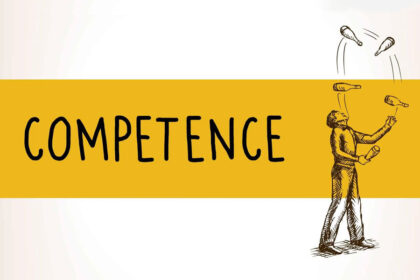Hi readers!
Have you realized that It’s been hard to avoid ChatGPT and the “artificial intelligence” tools to which it belongs to. It is everywhere, covers everything and so does its thrilling claims and warnings about the accompanied disasters. It’s possible to use ChatGPT considering It is a tool to write efficiently, effectively, and ethically.
To be careful, we must understand how ChatGPT works, and what it can (and can’t do).
ChatGPT is very good at producing English text that sounds like a human wrote it. It does this by taking a “prompt” and knowing what words it has previously digested during online writing using that prompt.
The first ChatGPT’s prompt is what you ask it to do; then as it produces text, the prompt for each new word or phrase is the passage that precedes it.
A prompt serves as an initial input or instruction given to an AI system. It’s a crucial element that lies at the heart of how AI algorithms interact with users, data, and their environment. When we provide a prompt, we’re essentially giving the AI system a starting point for generating tailored responses or actions based on natural language processing.
Think of it as the conversation starter that guides the AI’s output
Knowing how ChatGPT works is essential because it leads to the first of the two crucial understandings that must be comprehended before we can use it as an effective and ethical writing tool.
Please keep in mind that:
ChatGPT does not know anything. It can produce reasonably phrased and styled text, but it doesn’t know or care whether that text is true, Consequently, ChatGPT invents supposedly factual statements that aren’t true. In academic writing, that includes misstatements of all kinds, as well as citations for statements true and false that sound plausible but don’t actually exist.
The other critical insight about ChatGPT:
- You are responsible for any mistakes it makes.
Just as the woodworker, not her chisel, is responsible when a cabinet door won’t close, you are responsible for whatever is the heading that you provided to the readers with? It will credit the author (s) irrespective of the tools you used to write it.
- If your paper includes an imaginary citation, the fact that it came from ChatGPT doesn’t excuse your including it. What comes out of ChatGPT, or any writing tool, is only a suggestion that you can use to write your manuscript; but you and your coauthors must make the decision to use it and then stand behind that decision.
With the knowledge of these two factors, we can put ChatGPT to work.
While using it effectively, it’s imperative to consider that ChatGPT can’t be trusted to generate content therefore, it is not advisable to ask it for a literature review or to critically evaluate an idea rather consider it as an idea generator and as a style assistant.
For example, ask ChatGPT to suggest some hypothesis that could be tested with a set of available data. Suggest three alternative levels of intensities for the importance of arguments in a grant proposal,
- Give ChatGPT rough notes and ask it to provide a full-text draft,
- Give ChatGPT a rough draft and ask it to polish the grammar and syntax, revise the structure to improve logical flow, or make it more concise,
- Give ChatGPT an informally written draft, and ask it to re-write more formally, specifying that the result should be in the style of papers in your field (Remember, ChatGPT is very good at reproducing the writing patterns of past literature, and many of those patterns are bad),
- Give ChatGPT a formally written draft, and ask it for a more engaging, less formal version.
- Give ChatGPT your old method’s text and ask it to paraphrase. Academic writers scratch and/or scrape the need to avoid “self-plagiarism” in repeated descriptions of similar methods, but it’s always possible to rephrase,
- Give ChatGPT a manuscript, or its abstract, and ask it to generate a plain-language summary. You can even specify a target reading level.
- These are the tasks that take advantage of ChatGPT’s strength which is “its ability to say things that sound like things people say”.
In every case, you’ll see ChatGPT’s output as suggestions to consider, not as text to be absorbed uncritically into your work.
Please watch If:
- ChatGPT’s version is better than yours?
- If it is worse?
- If it is suggesting an alternative that you hadn’t thought of before?
It is important to consider that ChatGPT is a tool that we must use effectively as well as ethically. These are new tools which makes people confused about what is and isn’t appropriate in their use? Its use is as simple as using any other writing tool. The only thing is to take responsibility of what you write under your heading and authorship.
Firstly, check ChatGPT suggestions carefully because its you’re and not your coauthor’s, or a peer reviewer’s, responsibility to find and fix the nonsense it may generate. If something unfortunate makes it through, accept the consequences with grace, retrieve the paper including the prompt and apologies,
Secondly, don’t misrepresent your work. Some journals require disclosure if a manuscript was written with AI assistance? Disclose it, if you did? If you have used spellcheck tool or grammar checked by someone else, please disclose it if and when asked.
If you have coauthors or supervisors, it is best to explain your ChatGPT use to them too.
Finally, for any tool, consider the environmental and social costs. For ChatGPT it is the carbon footprint of the computational power you’re harnessing. The software that we use are trained on a huge amount of human-produced work whose authors are not acknowledged (like I use others generated text to make things easy to understand for you dear readers) or compensated, and the psychological toll on human workers who have been tasked with finding and labelling hate speech, violent threats, and more in that corpus. all tools have costs like these, but an ethical tool user understands and weighs them.
Does this all sound like ChatGPT might be a difficult tool to master? Perhaps it is, but so does other tools? However, if you have aptitude or interest and practice, you can have ChatGPT expand your writing skills without leading you off the target.
Read this blog carefully dear readers if are inclined towards using Chat GPT in your work.
Stay blessed,
Bye





